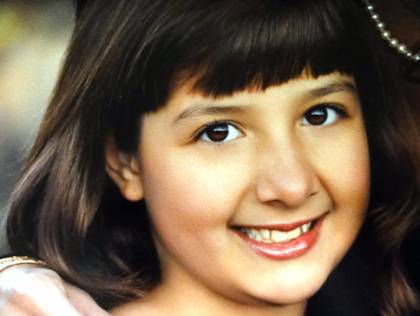“Democracy … as Good as Christina Imagined It”

In his speech to the nation last night memorializing the victims of last Sunday’s massacre in Arizona, President Obama did something that may turn out to be epic.
He is a silver-tongued orator. But it was only yesterday evening that I felt he used his gift to genuinely attempt his oft-stated goal of bringing our nation together.
We all carry within us a combination of motivations. Is it possible that, shrewd politician that he is, he saw in this tragedy a chance to increase his popularity? Certainly. But is it also possible this tragedy touched him deeply and prompted honest self-reflection? It is. And certainly, if anything could prompt introspection, and a sincere quest for self-improvement, it would be something as sacred, as unthinkable, as the death of a child.
The President’s appeal to Americans to be better stewards of our democracy resonated with honest feeling and an idealism reminiscent of President John F. Kennedy’s “Ask Not What Your Country Can Do For You” speech. I would not be surprised if this speech finds a place in our nation’s cannon as a powerful call to civic participation, public service, patriotism, and civility in spirited political debate. The speech was both a memorial to the fallen and a tribute to democracy, that great institution so often taken for granted. Especially touching were the President’s words about Christina Taylor Green, the nine-year-old girl who was murdered, and his homage to the idealism of this American child:
Imagine — imagine for a moment, here was a young girl who was just becoming aware of our democracy; just beginning to understand the obligations of citizenship; just starting to glimpse the fact that some day she, too, might play a part in shaping her nation’s future. She had been elected to her student council. She saw public service as something exciting and hopeful. She was off to meet her congresswoman, someone she was sure was good and important and might be a role model. She saw all this through the eyes of a child, undimmed by the cynicism or vitriol that we adults all too often just take for granted. I want to live up to her expectations. I want our democracy to be as good as Christina imagined it. I want America to be as good as she imagined it.
Would it be too much to hope that the President comes to see that the civic-minded participation he lauded in his speech is very much in evidence not only at events like the ones held by Congresswoman Giffords but also at tea party events held by his detractors? That we can disagree, even vociferously, without crossing the line into demonizing political opponents?
Would it be too much to hope that some of the President’s more hard-line detractors could take away from this speech a sense of the love for this country and its people that the President shared? President Obama operates from a left-of-center political philosophy, and in his first two years of office he has chosen to cleave to it at times with seemingly little concern for compromise. But recognizing and criticizing that tendency in him is different from believing he is not an American, not a patriot, or believing he does not love our country and its people. Clearly he is and he does.
Perhaps the most powerful moment in the speech came when he eulogized those who were killed as quintessential members of “our family, an American family”:
For those who were harmed, those who were killed — they are part of our family, an American family 300 million strong. We may not have known them personally, but surely we see ourselves in them. In George and Dot, in Dorwan and Mavy, we sense the abiding love we have for our own husbands, our own wives, our own life partners. Phyllis — she’s our mom or our grandma; Gabe our brother or son. In Judge Roll, we recognize not only a man who prized his family and doing his job well, but also a man who embodied America’s fidelity to the law. And in Gabby — in Gabby, we see a reflection of our public-spiritedness; that desire to participate in that sometimes frustrating, sometimes contentious, but always necessary and never-ending process to form a more perfect union. And in Christina — in Christina we see all of our children. So curious, so trusting, so energetic, so full of magic. So deserving of our love. And so deserving of our good example. If this tragedy prompts reflection and debate — as it should — let’s make sure it’s worthy of those we have lost. Let’s make sure it’s not on the usual plane of politics and point-scoring and pettiness that drifts away in the next news cycle. The loss of these wonderful people should make every one of us strive to be better. To be better in our private lives, to be better friends and neighbors and coworkers and parents. And if, as has been discussed in recent days, their death helps usher in more civility in our public discourse, let us remember it is not because a simple lack of civility caused this tragedy — it did not — but rather because only a more civil and honest public discourse can help us face up to the challenges of our nation in a way that would make them proud.
Indeed.
This entry was written by Heather Robinson and posted on January 13, 2011 at 2:15 pm and filed under Blog. permalink. Follow any comments here with the RSS feed for this post. Keywords: democracy, human-rights, President-Obama. Post a comment or leave a trackback: Trackback URL. */?>



